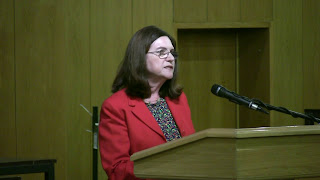The interaction between diplomacy and
literature functions in various ways. Diplomacy does not merely appear in
non-fictional and fictional literature as thematic material, but also shapes
form, while literature, in search of aesthetic representation, depicts
diplomatic activity. This seminar aims to discuss diplomacy as a practice of
communication and semiotic exchange and the representation of diplomatic
activities in literature in the sixteenth century during Queen Elizabeth’s and
Sultan Murad III’s reigns. Gifts and letters exchanged in abundance as part of
the diplomacy between the Ottoman Empire and the English sovereignty in the
sixteenth century provide an invaluable
evaluation of diplomatic poetics in early modern literary studies and in
redefining Europe.
SPEAKER: Dr
Gül Kurtuluş, Acting Chair
Bilkent
University, Department of English Language and LiteratureDATE: 02 May 2013 Thursday
TIME: 13:30
VENUE: Mehmet Akif Ersoy Hall, Beytepe


